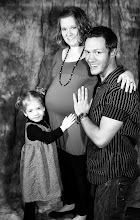If you are moving into a new home and need to choose a boiler or need a replacement for a faulty or broken boiler, it can be difficult to know where to start. The boiler is the most essential part of any home heating system as it is responsible for sending steam or hot water to each radiator in the house. Think of the boiler as being like a heart pumping blood around the body!
Choosing the right boiler can be tricky. That is why we have written this guide to teach you everything that you need to know.
Hot Water or Steam Boiler?
Your heating system will be either hot water or steam based. You need to know which of these you are working with before you can choose a boiler. There are a few ways to check this.
If your radiators have just a single pipe each connected to them, it indicates that your heating system is probably steam-based. Radiators with two connected pipes could be either water or steam.
If you have underfloor heating, your system is most likely hot water based.
Another way of checking your heating system is by looking at the boiler itself. A steam-based boiler will almost always have a small glass tube mounted on the side that shows you the level of water in the boiler itself.
If you aren’t sure, you can contact a professional to tell you if your heating system is steam or hot water-based and advise you of the best course of action. Companies like nonpareilsolutions.co.uk can help with advice like this!
Fuel Type
Types of fuel used to power boilers include natural gas, fuel oil, liquid propane and electricity. Natural gas is the most common type of fuel used, but if you live in a rural area you may use any of the other fuel types. If your gas is plumbed into your home from a main, you will probably need to use a natural gas boiler. Other fuel types require deliveries of tanks.
For smaller applications, such as providing heat for a single room, electric boilers can be a good solution.
Ventilation
There are three main types of ventilation available for boilers—chimney venting, power venting and direct venting. If you have a chimney of the correct dimensions, chimney venting may be workable for you.
If you don’t have a chimney, or your chimney is not suitable for your boiler, power venting may be the best choice. Power-vented boilers use a blower to control air movement and are economical in terms of space.
Direct vent boilers are the best choice for tightly sealed houses as they draw air from outside the home and exhaust it outside.
Efficiency
The AFUE (Annual Fuel Utilization Efficiency) rating is worth considering when looking at what boiler to buy. The better the rating, the less your boiler will cost to operate. Standard efficiency is around 80 - 85% and anything higher is better quality. Although boilers with a rating of 90% or over may be more expensive to buy upfront, they are often recommended as they are likely to last longer and be cheaper to operate.
High efficiency boilers often use condensing to increase heat efficiency. Condensing is when the boiler condenses water vapor into liquid water and can result in the boiler being 10% more efficient.
Staging or Modulating?
A boiler known as a “staging” boiler has different stages of heat output and will typically operate at the lowest possible stage that sufficiently heats your home. A “modulating” boiler can output heat at any point between a user-defined minimum and maximum level, allowing you a greater degree of control. Most modern high-efficiency boilers use modulating.
If in doubt about any aspect of choosing a new boiler, consulting an expert may be the best course of action!

Comments